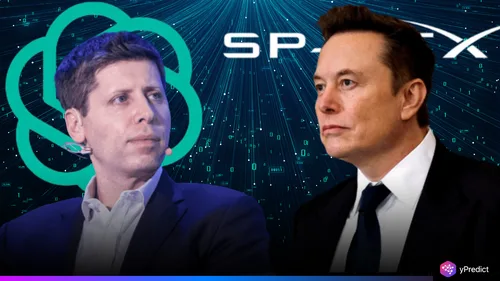
OpenAI, the artificial intelligence company behind ChatGPT, does not shy away from ambitious aspirations. However, OpenAI is now getting attention for something outside its groundbreaking technology, its growing valuation. According to anonymous sources, OpenAI is still seeking to raise $40 billion at a $300 billion valuation. However, before that deal is completed, OpenAI is reportedly engaging in internal discussions to potentially raise valuation to $600 billion.
If this happens, OpenAI would have the highest valuation of any private tech company in the world. As far as we can tell, Elon Musk’s SpaceX was at about a $400 billion valuation in August 2023 before going public. This is significant, of course, in that it is more than just another financial figure. It shows how fast AI is changing the business world, and it shows how unprecedented funders’ confidence is in the technology. OpenAI marks a turning point in the trajectory of the artificial intelligence industry in a way that incorporates innovation and capital.
News of OpenAI’s potential new valuation has stimulated conversations in the technology and finance sectors. So, what is behind this monumental valuation? What makes investors willing to bet on OpenAI in a big way? And what does a $600 billion valuation mean for private tech companies for the future, specifically the artificial intelligence industry?
Investor Confidence in the AI Wave Is at an All-Time High
The emerging excitement surrounding OpenAI’s future is fuelled by its technology’s adoption differential and near-term commercial prospects. ChatGPT has officially gone mainstream and the latest number shows millions of people across different industries are now using it. Educational institutions and businesses in finance and other industries are integrating AI capabilities into workflows at an accelerated pace. This momentum presents OpenAI with a formidable commercial opportunity and investors have noticed.
The wave of AI investment isn’t speculative. Just on the basis of Microsoft, there is an estimated $13 billion that’s already been directed to OpenAI from them and others are lining up. As tech giants begin to compete with each other for the opportunity to embed AI capabilities into everything they do from products to platforms, OpenAI’s research, research methods, and foundational product look more compelling every day. And this is what leads some investors to consider an OpenAI valuation of even $600 billion to be reasonable if not conservative.
From Research Lab to Global Tech Powerhouse
OpenAI began as a charitable research organization in 2015, but its emergence as a for-profit powerhouse has been shocking. At first, the company was struggling, but its partnership with Microsoft provided it with the capital to grow faster, take over big swaths of the AI market, and provide arguably the best API companies can buy. OpenAI powers a potentially infinite collection of applications, not just as writing tools on the rays, but virtual assistants and much more.
By releasing new models like GPT-4 and preparing the promotes of future GPTs that are even more powerful, OpenAI is ensuring that its innovation machine is running at a hundred percent. That unrelenting pace gives investors the security that their money is going into a company that is actually going to build a company to lead the next technology era.
Why the Jump from $300 Billion to $600 Billion?
The jump in valuation may seem extreme, but it captures actual signals from the marketplace. For starters, OpenAI’s revenue is skyrocketing. The company is now booking hundreds of millions of dollars in fixed revenue every year, and its enterprise deals are ramping up quickly. Second, licensing, partnerships, and AI-native products are mostly unachieved potential.
Additionally, the company’s influence over policy and regulation is increasing. This means that it is not only influencing the market, it is helping to set the rules. For many investors, this degree of influence and foresight is invaluable. Taken together with first-mover advantage, these factors make a $600 billion OpenAI valuation much less pie-in-the-sky and much more reasoned bet.
Can OpenAI Outpace SpaceX and Others?
Valuations don’t happen in isolation. Comparing OpenAI to other private tech companies like SpaceX offers some context. SpaceX, known for its reusable rockets and ambitious Mars plans, has long held the top spot in private market valuation. But AI, unlike space tech, scales fast and touches almost every industry.
OpenAI’s products are digital and global, requiring less physical infrastructure. That gives it the ability to grow revenue and user base with fewer constraints. SpaceX has hardware and logistics hurdles; OpenAI operates in a cloud-first, software-driven world. This gives it an edge in capturing massive market value quickly.
What This Means for the Future of Tech Investment
The ripple effects of OpenAI’s growth extend far beyond Silicon Valley. A $600 billion valuation would inspire a new wave of AI investment boom globally. It signals that AI is not just a feature, it’s the future of enterprise, creativity, and productivity.
Startups will chase similar models. Big tech will double down on AI development. Regulators will take more interest. Most of all, the funding landscape will shift toward companies capable of scaling AI technologies in real-world scenarios.
OpenAI’s rise tells us one thing clearly, the world is no longer betting on AI as an experiment. It’s investing in it as the next industrial revolution.





